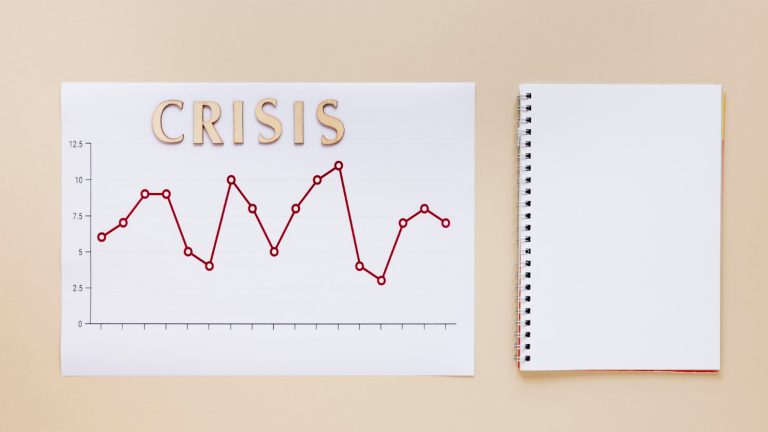In times of economic uncertainty, forex trading can be a daunting prospect. However, seasoned traders know that with the right strategies and a keen understanding of market dynamics, opportunities can still be found amidst the chaos. This article will delve into some key strategies for surviving and even thriving in the forex market during economic crises. But before we dive into the strategies, let’s briefly touch on a trading platform that has been gaining attention in recent years. Discover the potent features and opportunities provided by immediatewealth.
- Risk Management: Protecting Capital
During economic crises, market volatility can reach unprecedented levels. To weather the storm, traders must prioritize risk management. This means setting stop-loss orders, diversifying portfolios, and avoiding over-leverage. Remember that preserving capital is paramount, as it ensures you have the resources to seize opportunities when they arise.
- Safe Haven Assets: The Flight to Quality
When economic crises hit, investors often seek refuge in safe-haven assets. These assets typically include gold, the Japanese yen, and U.S. Treasury bonds. Traders can take advantage of these movements by monitoring the forex market for trends in safe-haven currencies. It’s essential to stay informed and react swiftly to changing market dynamics.
- Fundamental Analysis: Keep a Watchful Eye
Economic crises are often accompanied by significant changes in economic data and fiscal policies. Traders should stay informed about economic indicators, central bank announcements, and government policies. It’s critical to have a finger on the pulse of the global economy and adapt your trading strategy accordingly.
- Technical Analysis: Charting Your Path
Technical analysis remains a crucial tool for traders during economic crises. Chart patterns, trendlines, and technical indicators can provide valuable insights into market sentiment. Keep a close eye on support and resistance levels, as they can guide your entry and exit points.
- Adaptive Strategies: Flexibility is Key
During economic crises, market conditions can change rapidly. Traders must be adaptable and willing to pivot their strategies when necessary. Consider short-term trading, day trading, or scalping in volatile markets, but do so cautiously. Quick decision-making is essential in seizing opportunities.
- Diversification: Broaden Your Horizons
Diversifying your trading portfolio is a fundamental strategy for risk mitigation during economic crises. In addition to traditional forex pairs, consider adding other currencies or assets to your mix. Diversification can help reduce your exposure to economic uncertainty and provide a buffer against losses.
- Continuous Learning: Stay Informed
The forex market is ever-evolving, and staying informed is key to success. Keep up with market trends, emerging technologies, and trading strategies. Engage with trading communities, read educational materials, and attend webinars or workshops. Knowledge is a powerful tool in navigating the complex landscape of forex trading during economic crises.
- Psychological Resilience: Maintaining a Cool Head
Amid economic turmoil, emotions can cloud judgment. Fear and panic can lead to impulsive decisions that result in significant losses. To survive and thrive in forex trading during economic crises, traders must maintain psychological resilience. This involves discipline, patience, and a cool-headed approach to trading. Take breaks when needed, avoid emotional trading, and stick to your well-thought-out strategies.
- Long-Term Investment Opportunities: Identifying Gems
While economic crises can bring short-term chaos, they also present long-term investment opportunities. Certain assets may be undervalued during these times. Conduct thorough research to identify potentially lucrative long-term investments.
- Risk Assessment: Stay Informed About Geopolitical Events
Geopolitical events can have a significant impact on currency markets during economic crises. Stay informed about global developments, such as trade disputes, elections, and international conflicts, as these can influence exchange rates. A well-rounded understanding of both economic and geopolitical factors is crucial for making informed trading decisions.
- Utilize Technology: Leverage Automated Trading Tools
Technology has revolutionized forex trading, and during economic crises, automated trading tools can be invaluable. These tools can execute trades on your behalf based on predefined criteria, reducing the risk of human error and emotional decision-making.
- Build a Support Network: Learn from Others
Forex trading can be a solitary endeavor, but it doesn’t have to be. Build a network of fellow traders or join trading communities where you can exchange insights, strategies, and experiences. Learning from others who have weathered economic crises can provide valuable perspectives and support.
- Plan for the Future: Create a Trading Plan
A well-structured trading plan is essential, especially during economic crises. Define your goals, risk tolerance, and strategies in advance. A clear plan can help you stay focused and avoid impulsive decisions.
- Stay Informed About Regulatory Changes
Regulatory changes can impact the forex market, especially during economic crises. Keep an eye on evolving regulations and compliance requirements in your region. Adapting to these changes will help you stay compliant and continue trading with confidence.
- Seek Professional Advice When Necessary
Lastly, if you find yourself overwhelmed or uncertain about your trading decisions during economic crises, don’t hesitate to seek professional advice. Consult with financial advisors or trading experts who can provide guidance tailored to your specific circumstances.
Conclusion
In conclusion, surviving and thriving in forex trading during economic crises requires a multifaceted approach. Traders must combine risk management, adaptability, continuous learning, and the use of innovative tools to navigate the challenges posed by uncertain economic times. By incorporating these strategies and maintaining a resilient mindset, traders can not only survive but also seize opportunities in the ever-evolving world of forex trading.

